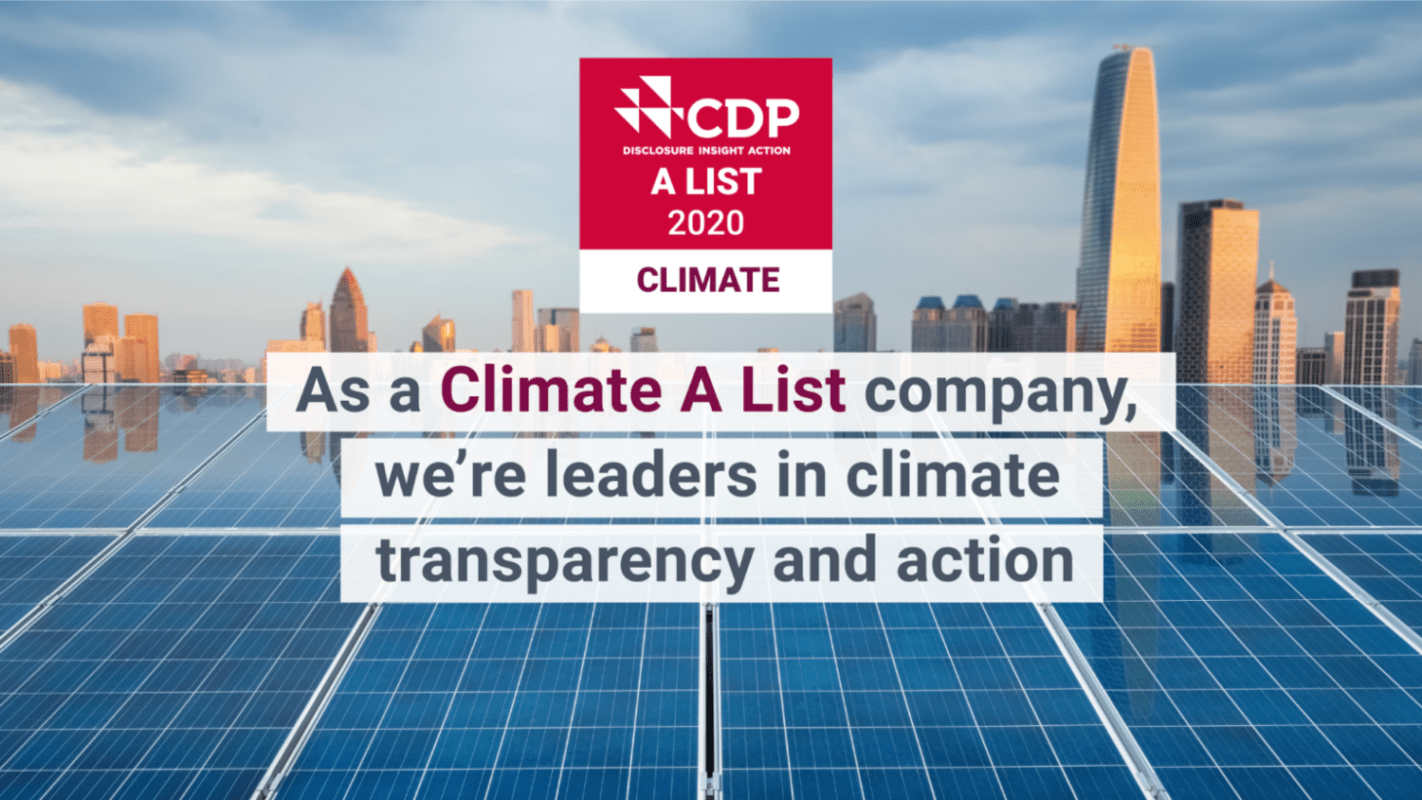Corporate accounting for the cost of carbon is rising, with the number of companies using or planning to use an internal carbon price increasing 80% over just five years .
Of nearly 6,000 companies surveyed on carbon pricing in 2020, more than 2,000 - representing over US$27 trillion in market capitalisation - disclosed that they currently use an internal carbon price or plan to implement one within the next two years.
The latest research from CDP - a non-profit that runs the world’s environmental disclosure system - reveals that nearly half of the world’s 500 biggest companies are now factoring this type of carbon accounting into their business plans.
This includes ArcelorMittal, BNP Paribas, Danone, ENEL SpA, Lufthansa, Microsoft, Ørsted and Renault, which all disclosed that they have already adopted an internal carbon price.
CDP’s analysis found that the median internal carbon price disclosed by companies in 2020 was US$25 per metric ton of CO2e , with companies in Europe and Asia implementing the highest average price of US$28. However, with more countries bringing in carbon pricing regulation, and carbon prices soaring to all-time highs in the EU emissions trading scheme this year (rising to over €40 / US$44.80 in March), companies need to increase the carbon prices they are currently accounting for internally.
That said, the data does indicate that the majority of companies use evolutionary prices which adjust over time, suggesting that corporates worldwide may be preparing for greater risks from their carbon emissions in the years to come.
11 out of the 13 sectors covered - including fossil fuels, manufacturing and financial services - saw an increase in the share of companies using or planning for an internal carbon price between 2019 and 2020. This is a notable shift from 2018 to 2019 where only 4 of the 13 industries saw an increase. Internal carbon pricing is most common in the power industry with 56% of companies currently using internal carbon pricing and 15% planning to implement this within the next two years.
The research covered 5,952 corporates from 84 countries. Europe is the region with the biggest year-on-year increase of companies, where 39% more companies reported they use or plan to use an internal carbon price. Carbon pricing in China, which launched the world's largest emissions trading scheme this year – increased 27%.
The data demonstrates a correlation between companies setting an internal carbon price and taking other actions to reduce emissions, with a higher percentage of the companies currently implementing an internal carbon price also setting comprehensive emissions reduction targets or using more renewable energy.
In terms of why companies use internal carbon pricing, 60% of all respondents flagged driving low carbon investment as a key reason (a 15% increase from 2019), while improving energy efficiency and changing internal behaviour were also highlighted as objectives.
Companies also disclosed that they use internal carbon prices to address current or future regulation that could increase the cost of emissions and have a financial impact on their business.
This is in the context of an increase in regulation globally - 64 carbon pricing initiatives are currently in place or scheduled by governments and regulators, up from 61 in 2019.
However, despite 1,830 companies saying that they currently face or expect regulation on the price of carbon, 60% of these (over 1,100) did not identify it as a substantive risk to their business. This is concerning as it shows a potential gap in climate risk data being provided to investors.
Nicolette Bartlett, Global Director of Climate Change at CDP, commented: “Our latest data shows a clear correlation between companies putting a price on carbon and those taking other strategic decisions to combat climate change. With the urgency of the climate crisis requiring a systemic shift in corporate behaviour, it is encouraging to see such an increase in the number of global companies taking positive steps forward, and pricing carbon risks into their businesses.
However, with more carbon pricing systems emerging every year, prices rocketing and an increase in regulation which places an effective price on carbon emissions, companies need to start anticipating these inevitable policy shifts, taking action in their value chains, and disclosing these risks to their shareholders.
Governments too should take note of this trend and be confident in upping their ambition on carbon regulation as a key lever to incentivise corporate and societal progress in reducing global emissions.”
CDP is the largest repository of corporate information on internal carbon pricing, with data collected every year since 2014.
Policymakers, regulators and international institutions engage with CDP to understand corporate exposure to carbon pricing regulation, alongside the uptake of internal carbon pricing as a tool to support the transition to a low-carbon economy.
About CDP
CDP is a global non-profit that runs the world’s environmental disclosure system for companies, cities, states and regions. Founded in 2000 and working with more than 590 investors with over $110 trillion in assets, CDP pioneered using capital markets and corporate procurement to motivate companies to disclose their environmental impacts, and to reduce greenhouse gas emissions, safeguard water resources and protect forests. Over 10,000 organizations around the world disclosed data through CDP in 2020, including more than 9,600 companies worth over 50% of global market capitalization, and over 940 cities, states and regions, representing a combined population of over 2.6 billion. Fully TCFD aligned, CDP holds the largest environmental database in the world, and CDP scores are widely used to drive investment and procurement decisions towards a zero carbon, sustainable and resilient economy. CDP is a founding member of the Science Based Targets initiative, We Mean Business Coalition, The Investor Agenda and the Net Zero Asset Managers initiative. Visit cdp.net or follow us @CDP to find out more.

